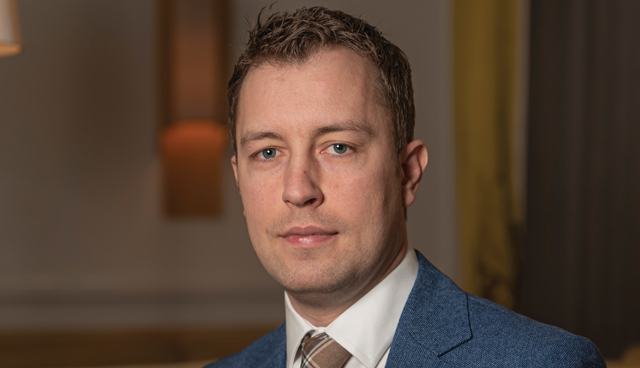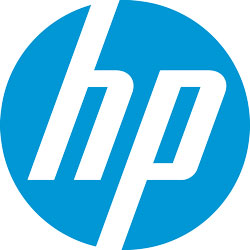HP Inc.: Leading the way

HP Inc. Country Manager, Ireland Neil Dover discusses the company’s drive to be the best in class in meeting the changing demands of ‘Future of Work’, security and sustainability.
Outlining how HP is evolving its services to meet changing demands, Dover highlights the organisation’s integral understanding of the ongoing demographic workplace shift, as much as a technology shift, in regard to the future of work.
Dover is new in post, having taken up the position as Country Manager, Ireland in February 2020 but brings a broad experience base in a variety of roles throughout his 12 years with HP Inc. Roles spanning public sector management, retail and distribution mean that Dover brings a unique end-to-end outlook on the priorities in Ireland.
By 2025, he estimates that 75 per cent of the workforce will be millennials and recognises that meeting the changing demand of this demographic will require an innovative approach.
“A significant number of millennials don’t really view work and their personal life as two distinct things. Often, they want to merge the two, what we at HP call ‘one life’,” he states.
HP’s unique approach to the future of work spans workspace, workforce and work culture, offering organisations services to shape the future of work to their advantage.
“The modern worker wants the flexibility to take devices from home to work and vice versa. Traditionally, work devices were built to be functional and durable. Now it has to be those things, but it also has to be attractive, enabling suitability for at home and in the workplace.”
HP have excelled in this space, explains Dover, with a growth of 3 per cent in the past two years propelling them to become the fastest growing premium manufacturer. The key, he insists, has been a focus on innovation and design, coupled with an ear to what users are requiring in their devices.
An example Dover points to is that of the HP Notebook Elite Dragonfly, the lightest notebook device for commercial purposes at under 1kg. “It’s a really attractive and desirable device, even outside of the fact that it’s a commercial device,” he states.
Similarly, the HP ZBook Studio, a “hybrid” design with workstation power, is another impressive device HP currently have in the market. “We’re aiming for first and best in class in terms of our device portfolio,” adds Dover.
Coupled with device design, Dover explains that expectations around serviceability are also evolving, with most people now expecting the same level of service at home and on the move as they did from a traditional office setting.
“That’s a major challenge for a lot of IT departments,” says Dover. “IT departments are typically overrun with requests for updates, new devices and break fixes and IT resources are often wasted on trying to maintain a fleet when their skillsets should be redeployed to focus elsewhere.”
The Country Manager explains that HP’s ‘as a service’ offerings, such as those of ‘Design as a Service’ (DaaS) or print as a service, essentially take the pain away from IT departments and increases the benefits to the end user.
“A significant number of millennials don’t really view work and their personal life as two distinct things. Often, they want to merge the two, what we at HP call ‘one life.”
“Our services are centred on being proactive and establishing a predictability in regard to our fleet management. Predictability means that often an issue can be resolved before it becomes a problem. We’ve integrated AI and analytics to improve that predictability and remove the pain from IT departments. For the user, this translates into more up-time and devices that are constantly operational. Rather than wasting half a day with IT trying to get your email back, the device is either swapped out or fixed before the problem occurs.”
A recent innovation by HP is the introduction of HP Tech Cafes and locker solutions, which enables HP to manage problems onsite and end-to-end, improving the workplace experience Dover points to this as one of the various solutions that HP are producing to provide opportunities for IT departments to move away from their more traditional role and into a space where they can add greater value to their organisation.
Security
For all of HP’s solutions, whether devices are used at home, work or mobile, security remains at the forefront, explains Dover, with HP continuing to focus on the weakest points.
“Right now, those weakest points are endpoint devices and people. These are areas in which HP is very focussed,” he says. “HP has invested significantly in security and as a result has the most secure products on the market. We’re proud of the many awards we have won in this regard and of the reputation that we’re quickly building around security and the performance of devices.”
Outlining how HP is leading in this area, Dover points to the introduction of automation into detecting issues but also repairing issues. An example is that of HP’s SureStart technology which has a self-healing PD BIOS (Basic Input/Output System) protecting users from attacks. Similarly, HP Sure Run uses automatic detection and can fully recover the HP OS image without requiring that recovery software be present on the machine and using a network connection.
“All of these services ensure very little downtime for the end user and automation is the key,” explains Dover.

“Traditionally, work devices were built to be functional and durable. Now it has to be those things, but it also has to be attractive, enabling suitability for at home and in the workplace.”
Sustainability
Alongside security, a major focus for Dover and HP is in the area of sustainability. The Country Manager outlines a “circular economy” outlook on their products, ensuring that sustainability is a priority not just in the design phase but right the way through to disposal.
As a result, HP were awarded a triple A* rating by the government procurement directorate in Northern Ireland in February, alongside a Sustainability Leadership Award, becoming one of only five companies worldwide to attain both successes.
HP was the first global IT company to publish a full carbon footprint and outlining HP’s pride in being recognised for its sustainable actions, Dover points to a range of measures including the recent release in 2019 of HP paper, which comes with a guarantee of zero deforestation and the issuing of carbon footprint calculators and tools to end users, highlighting where savings are being made.
“The reputation that we have built in the market is second to none and it’s something that we are receiving a lot of feedback on. Demand from the market is widespread and a focus on sustainability is something that is being demanded, not just by organisation leaders but by the users. Our sustainable approach is something we’re very proud of in HP,” adds Dover.
However, HP’s sustainability agenda expands beyond the carbon footprint and recent initiatives have focussed on communities. HP have enabled better learning outcomes for 21 million people around the world and are on target to reach a goal of 100 million by 2025.
At the same time, HP recognises that its overall ambition must be powered by diversity and inclusion. Dover explains that this means building a culture within the organisation where “people from all walks of life can contribute and flourish is a cornerstone of our success”, but also working to ensure that, externally, HP products are manufactured with respect and care for the people who make them. To date, HP has provided skills and well-being training to more than a quarter of one million workers worldwide.
Future trends
The Future of Work, security and sustainability remain core to HP’s thinking as they continue to design and deliver new devices and new styles of devices, says Dover. One example is the recent launch of the Spectre Folio, a leather-bound device “which brings together luxury and quality with high-end and refined technology”.
“The device has proven extremely popular and it’s an area we’re investigating more and more. Not just developing powerful machines but the look and feel of those machines and how users interact with it. That’s something our engineers and designers are very focussed on.”
Looking more broadly, Dover points to the evolution of 3D printing and VR as an ongoing focus for HP. Recognising the level of disruption likely to be experienced through technology advancement in the coming years, he points to the manufacturing sector as a prime example of where HP’s 3D printing services and predictive technology could negate downtime through instant part production.
“We want to continue to lead the way in the premium space,” he concludes.
 Neil Dover
Neil Dover
Neil joined HP Inc. in 2010 as Product Business Manager, before moving to become Retail Channel Manager. He served as Public Sector Manager, Personal Systems until February 2020 before taking up his current post where he is responsible for leading the overall strategic direction of the business and the sales team in Ireland.
Neil has a degree in Computer Science from DCU and has a passion for travel. He and his family have travelled widely, sampling new cultures and he lists Japan and Peru as next up on his to-do-list.






